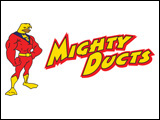In 2008 the United States introduced Country of Origin Labeling (COOL) requirements that said that Canadian born livestock that is shipped to the U.S. and processed in the U.S. had to have a different label on it from U.S. born and processed livestock. This required U.S. producers to have different assembly and operation lines making it less likely that they would import Canadian livestock.
The COOL requirement was believed to be a discriminatory measure against foreign livestock that was not consistent with the trade obligations of the United States under the World Trade Organization (WTO). In fact, the COOL regulation cost Canadian beef producers $25- $40 per head and cost the beef industry overall approximately $625 million per year. It had similar negative effects on the pork industry which was targeted by Country of Origin Labeling requirements.
The Canadian government appealed the COOL regulations to the World Trade Organization arguing it was a prohibited trade barrier. In November of 2011 the WTO ruled that the Canadian government was right and that the COOL regulation discriminated illegally against foreign livestock.
The U.S. appealed the decision and in June of 2012 the WTO again ruled in favour of Canada and shortly after it was ruled that the U.S would need to conform to the ruling by May 23, 2013.
So it was with great disappointment last week that we learned that the U.S. was in fact not complying with the ruling and in had actually made further changes that would further discrimination against Canadian cattle and hogs. Federal Conservative Agriculture Minister Gerry Ritz and Conservative Trade Minister Ed Fast were quick to condemn the U.S. actions and vowed to consider all options including the use of retaliatory trade measures.
In the Manitoba Legislature, when the U.S. decision to not follow the WTO order became known, I moved, along with our Agriculture Critic, Ralph Eichler, to bring forward a motion for an emergency debate. It was agreed to by all political parties and the Manitoba Legislature was unanimous in expressing concern with the U.S. decision and support for the Canadian government using the measures it has to see that the WTO decision is enforced.
It is true that Canada has no greater friend and trading partner than the United States but even within friendships there exist serious disagreements. It is extremely important that the U.S. follow the WTO order for the benefit of future decisions and it is most critical for our livestock industry. Manitoba Progressive Conservative’s are committed to working with the federal government and lobbying our American counterparts to see that the WTO ruling is followed.



